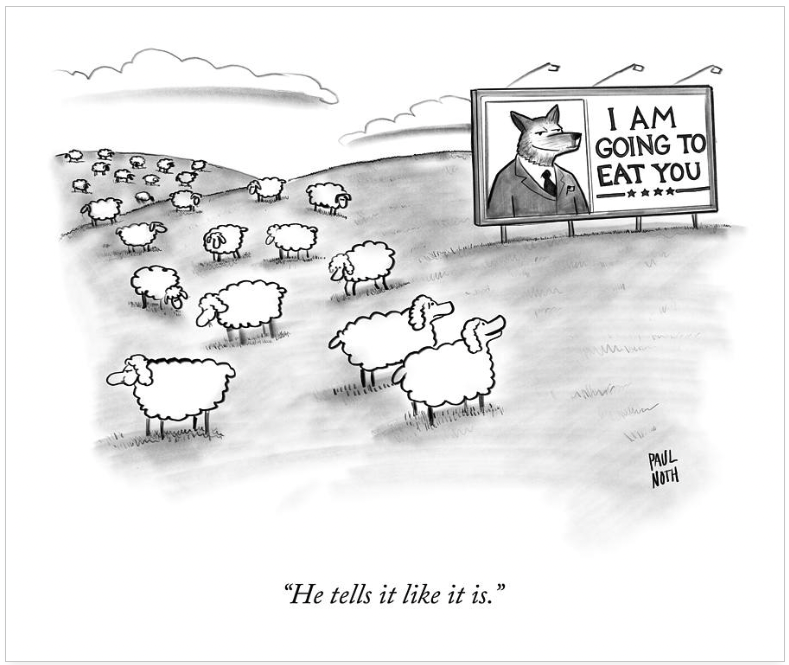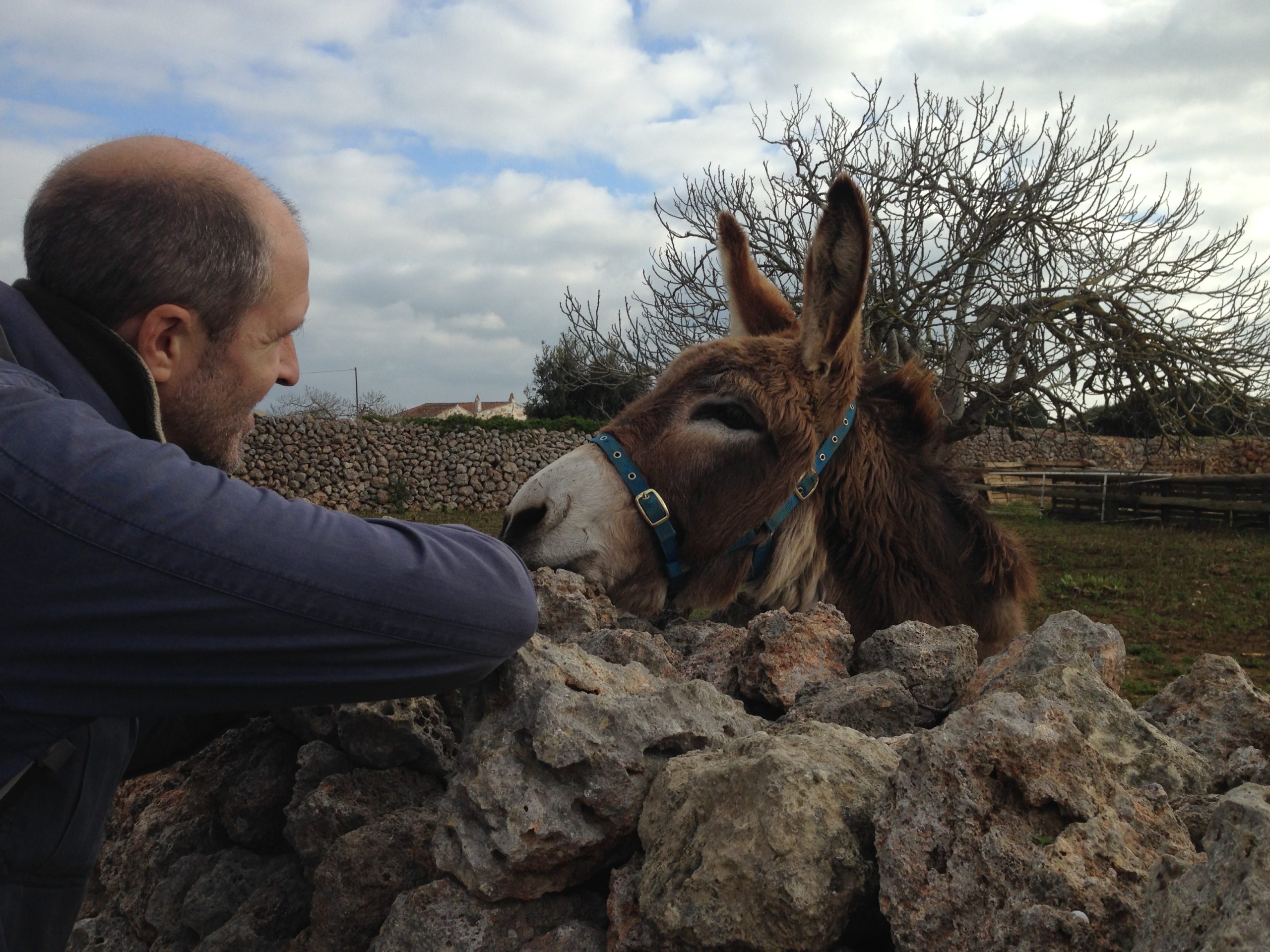
About trump and the Evil and stupidity alliance
This blog is (or should be) about work. But the seriousness of the global situation, which threatens the continuity of democracy and development cooperation policies, justifies an article dedicated to the dangers of the current situation. After Trump’s victory, I am not optimistic.
Progress has been conceived as a fight against ignorance, but victory is by no means guaranteed. Karl Popper already warned that what one generation had gained could be lost by the next. He also said that social orders can be no better than their members, and that if bigots were tolerated, democracy was in danger.
What has it been that has tipped the battle in favour of reactionaries against progress? I see two main causes. The most important is that the right has managed to federate stupidity, ignorance and evil. When all three are in the majority, we have results like those that have just occurred in the USA.
Some definitions may be needed here. A stupid person, according to Carlo M. Cipolla, is one who causes loss to another or to a group of people, without gaining anything from it, and may even lose out. In his very amusing but unscientific book ‘The Basic Laws of Human Stupidity’, Carlo M. Cipolla explains that stupidity is homogeneously distributed in society, across class, education level and gender, and the number of stupid people is constant. To simplify things, we will consider ignorance and stupidity as the same thing, although there are nuances. To borrow again from Popper, ignorance is not the absence of knowledge, but the refusal to acquire it.
Evil, on the other hand, consists of actions that benefit only the one who performs them, while stupidity benefits evil to the detriment of the stupid person who performs the action. The wicked (which Cipolla also calls bandits) use the stupid for their own benefit.
With stupidity, little can be done, but since it is equally distributed (according to Cipolla), even across the political spectrum, there should be no difference in democracies in terms of the influence of stupidity on electoral results. But there is.
The right has managed to mobilise and unify its stupid much better. The left is able to mobilise its own, but it has not unified them: they subdivide into sects whenever they can, vote their own way and are unable to act together for the same causes. The ultra-right and the right tend to vote together, the ultra-left and the left only occasionally.
The ability of the stupid to mobilise has been known for a long time. It has a lot to do with the sense of security of stupidity and the intrinsic resistance of ignorance to disappear by acquiring knowledge. It is called the Dunning-Kruger effect, the tendency of a person with few capabilities to overestimate what he or she has. It is difficult to convince misguided people that they are wrong. Stupid and ignorant people are very self-confident, but they are also full of energy.
Unification, both left and right, has been made possible by social networks. Umberto Eco used to say that the stupid man who used to spout his rantings at the bar with a carajillo, now joins thousands of his peers on social networks. But only on the right has this unification led to joint action. On the left, each sect goes its own way.
Disinformation has been the unifying element. This is aggravated by the fact that the creation of disinformation is automated, which leads to an economic problem: it consumes far fewer resources to create it than to refute it. It costs nothing to create a hoax or bullshit.
The goal of disinformation creation is not to make people believe the wrong things. It is to make them lose their ability to discern what is good and what is bad and lead them to believe nothing.
The ignorant do not understand the policies that affect them, and these are becoming more complex and require more knowledge to understand. Disinformation aims to make people who do not understand a policy (whether it is about vaccines, climate change or inflation) believe that someone is always trying to deceive them.
If progressive forces want to redirect biased thinking, extreme delicacy, which also consumes resources, must be used to try to bring someone out of their ignorance: you can’t call a fool a fool. It is counterproductive and leads to defensiveness. Hillary Clinton already demonstrated this by calling Trump’s Republicans deplorables, which carried considerable weight in her 2016 victory.
What to do is the most important question. There is no obvious answer. Those on social media should be congratulated for doing what they can to counter disinformation, for, although they do not seem to be winning at the moment, they should be done anyway. In addition, we must support quality, paid media, which is the equivalent of what donating to an NGO was years ago (which we must continue to do).
Young people need to be educated, although this is very difficult to achieve in times of gym influencers and cryptocurrencies. Young women can do it. Statistics show that they are much more left-leaning, thanks to feminism and better education levels. Let them use their influence to educate their cryptobros boyfriends.
Ignorance on the left wing must be fought, but this is a thankless task. My work, in the development cooperation sector, has led me to participate in policy discussions that included criticising our own. This has not made me a popular person in the sector. Criticising the inconsistencies of your own makes you look like one of the others. In one of the organisations I worked in, I was called ‘the revisionist’. It was hard work to convince them that I am with those who, in Arthur Koestler’s words, ‘are wrong for the right reasons’. My sympathy is with the side that does not always have the best arguments, but has the best will: feminist, anti-racist and anti-fascist, even if it is sometimes wrong.
You may also like
The debate on food reserves is back
During the two food price crises between 2008 and 2012, there was an intense academic and political
Why this website?
In recent decades there have been impressive advances in rural development, the fight against hunger



Post a comment